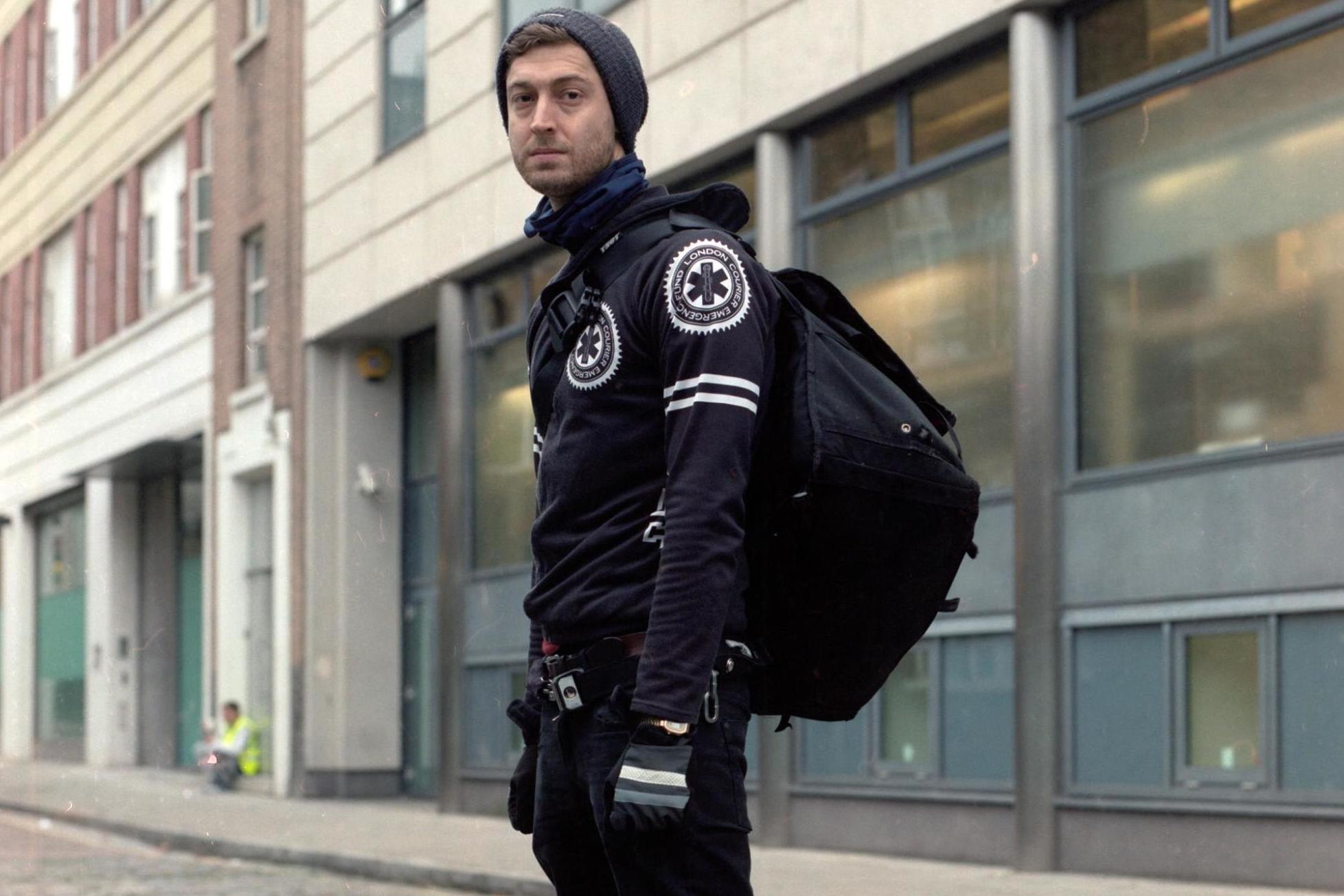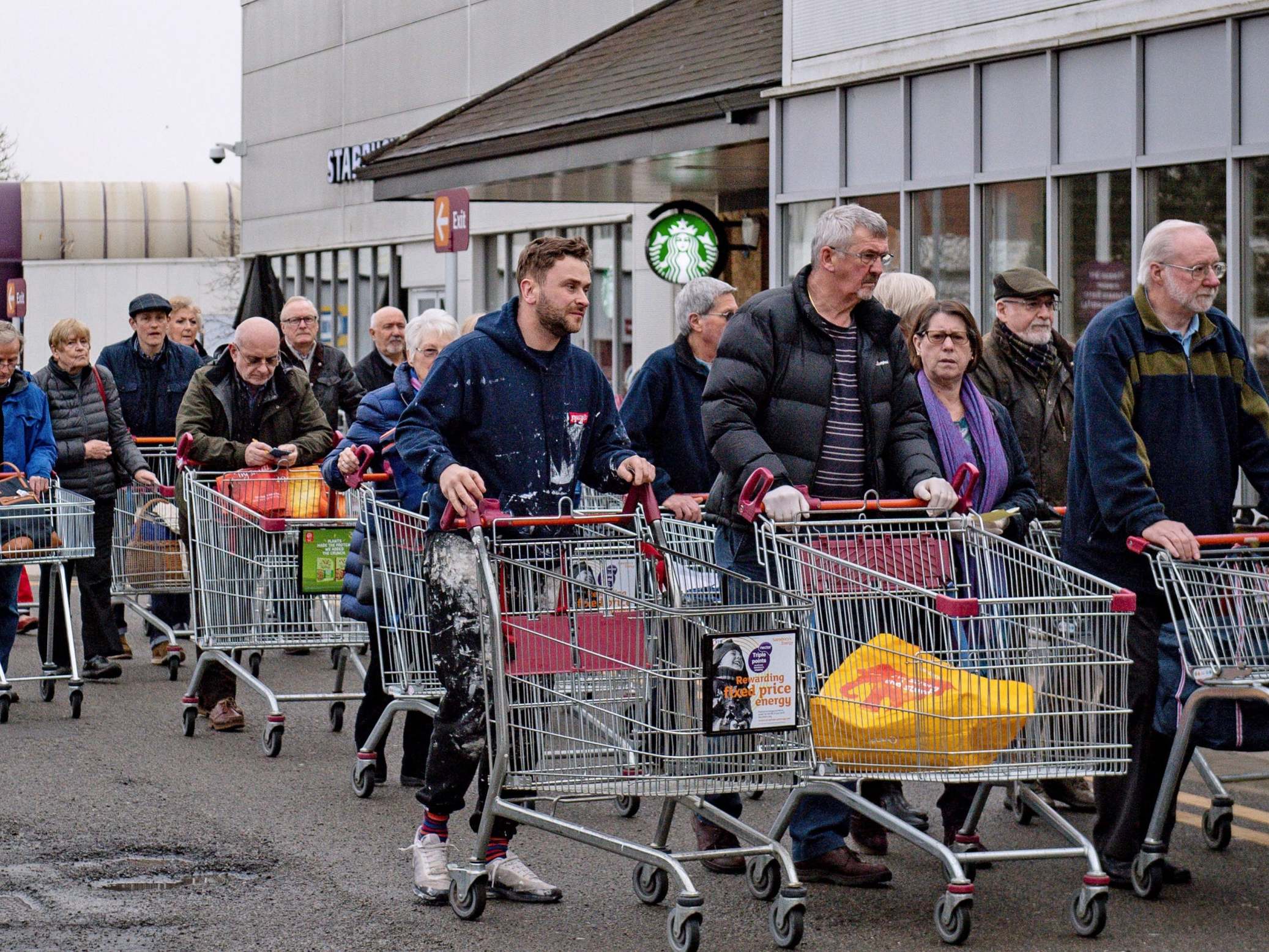Coronavirus: How do delivery drivers, pharmacists and supermarket staff feel about having to go to work during the crisis?
‘Self-isolation shouldn’t be a privilege. We shouldn’t have to think, ‘I can’t afford to stop working’,’ says medical courier

Your support helps us to tell the story
From reproductive rights to climate change to Big Tech, The Independent is on the ground when the story is developing. Whether it's investigating the financials of Elon Musk's pro-Trump PAC or producing our latest documentary, 'The A Word', which shines a light on the American women fighting for reproductive rights, we know how important it is to parse out the facts from the messaging.
At such a critical moment in US history, we need reporters on the ground. Your donation allows us to keep sending journalists to speak to both sides of the story.
The Independent is trusted by Americans across the entire political spectrum. And unlike many other quality news outlets, we choose not to lock Americans out of our reporting and analysis with paywalls. We believe quality journalism should be available to everyone, paid for by those who can afford it.
Your support makes all the difference.People across Britain are still adjusting to a strange new existence spent mostly indoors after Boris Johnson told everyone to stop all unnecessary trips and work at home if at all possible.
Yet millions of essential workers helping the nation through the coronavirus crisis don’t have the luxury of staying at home – and they are sharing their stories about what it’s like to keep on going despite fears about their own health.
Many of the delivery drivers, postal workers, supermarket staff, pharmacists and bank tellers – all on the list of key workers released by the government – are worried about their financial security if they do get ill.
Alex Marshall is a self-employed courier for TDL – a laboratory services company that does work for the NHS – ferrying medical samples across London. He has carried some of the samples taken from potential sufferers of Covid-19 for lab testing.
The 35-year-old told The Independent he is concerned about gig economy workers, like him, who simply can’t afford to develop symptoms of the virus. “Self-isolation shouldn’t be a privilege. We shouldn’t have to think, ‘I can’t afford to stop working’.”
He added: “We’re obviously going to be more exposed given how much we’re out and about. If we’re considered key workers now, then the delivery companies should be facilitating us to follow the health advice and giving the support to do that.”
Mr Marshall is a branch chair of the Independent Workers’ Union of Great Britain (IWGB), and he was recently told by TDL that couriers would get the minimum statutory sick pay (SSP), which is currently £94.25 a week.
His union wants the company and other courier firms to provide full pay if employees get sick. “It’s amazing that it takes a pandemic for people to realise how precious people’s livelihoods actually are,” he said.
Supermarket employees are also on the frontline of this crisis on low pay, coping with chaotic scenes in the aisles as many ignore all warnings and continue to panic buy.
One supervisor at a supermarket in southwest London said it was difficult explaining to customers what they were up against in trying to keep the shelves replenished.
“We have some really angry people, really unhelpful people,” she said. “But others have been really nice and there seems to be a bit more patience now. We’re lucky in that no one here has been ill yet – but I do worry what happens then, obviously. We’re hoping there will be more cover.”

Colin Todd, 62, works as a delivery driver for one of the big supermarkets in London. “I want to keep working as long as possible, so long as there’s no signs of illness,” he told The Independent.
Mr Todd said a lot of the people he comes into contact with – at safe distance – are keeping up their spirits with “jokes”. But some are undoubtedly getting anxious.
“I’ve got one regular disabled customer who is worried as she can’t get another delivery slot for the next two weeks ... I gave her my number and I will try to help her voluntarily.”
He said his own supermarket, which he preferred not to name, did have enough staff, but the logistics of the huge upsurge in online deliveries remain daunting.
“I should think there will be enough cover – there’s more of us than vans.”
Pharmacists have also had to deal with panic buyers trying to bulk buy medicines.
There has been some anger among in the profession that they were not named specifically on the government’s list of essential workers, with many left to assume they were “producers and distributors of medicines”.
One paediatric pharmacist in Manchester tweeted: “The problem is that no matter how pressured the pharmacy sector is or how key a role we play … the acknowledgement is always along lines of ‘and everyone else’.”
Despite the lack of clarity, there is at least the prospect most of these key workers will be able to send their children to “skeleton” schools, an option many parents won’t get.
For others, job opportunities in these critical fields will be welcome in the weeks ahead. Some supermarkets are now hiring more staff. Morrisons has announced it was creating 3,500 jobs to help meet the huge demand for its home delivery service.
Mr Marshall said getting out on his bike and riding across London does at least help him clear his mind.
“You can see people are trying to keep each other’s sprits up,” he said. “And there’s at least a bit of freedom about being outside.”
Join our commenting forum
Join thought-provoking conversations, follow other Independent readers and see their replies
Comments